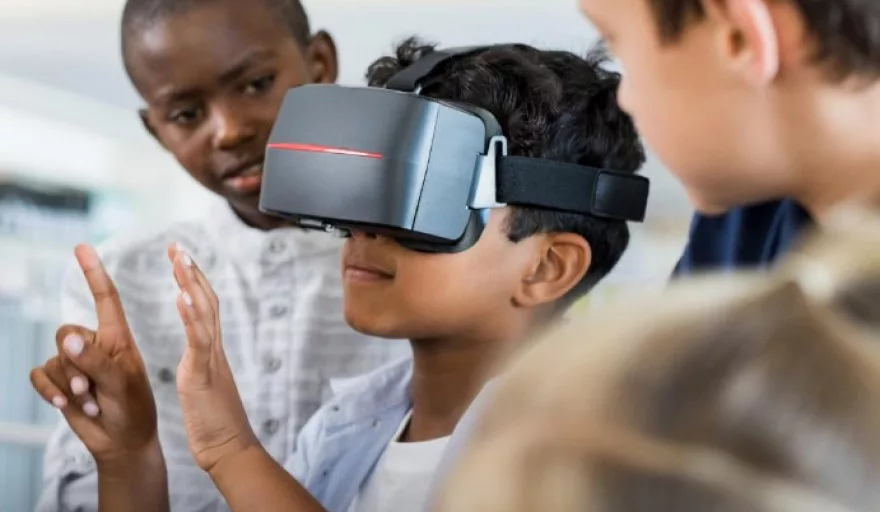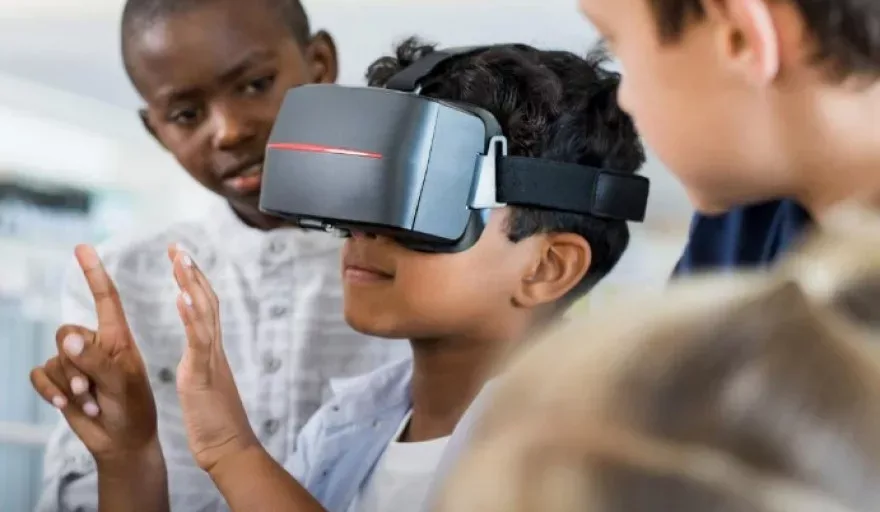
Much like 2018, it seems that digital transformation will remain a defining agenda across Africa for the coming year.
New technologies are opening the continent’s eyes to new ways of working, communicating and learning, allowing regional economies to blossom as ever-greater numbers of people continue to become better connected.
However, despite the successes, progress remains somewhat restricted by a number of elements. From a lack of cohesion in digital education to insufficient telecommunications infrastructure, Orange has lined up 2019 as the year to tackle many of these limiting factors.
“Our goal is to position ourselves as a leading part of digital transformation for the countries and ecosystems of Africa,” explains Elisabeth Medou Badand, Senior Vice President at Orange Middle East and Africa (MEA).
“With a range of established strengths, from our 900,000-strong distribution network to database of 40 million Orange Money customers spanning 17 countries, we understand that we are in a privileged position, and hope to leverage this to not only improve our own business but also extend benefits to the continent’s entire population.”
Pursuing transformation to enable transformation
These ideals filter down throughout Orange’s entire regional business structure, evident in the firm’s recent strategic adaptations that have now positioned it as a multi-service operator.
“Historically, our predominant business was voice calling,” Badang explains, “but this has now been replaced by data and services.
“We work in markets where digital solutions can make a real difference, namely in sectors that are emerging or not yet fully established. We at Orange understand that we need to change alter our culture from one centred around pure connectivity to one of mobile uses and services – a process that will enable us to expand our customer base.”
Pursuing this revitalised model, the firm is relying primarily on the financial services, energy, agriculture and education industries, four sectors that it has deemed to be ripe for digital transformation across Africa.
“By 2030, we are confident that revenue from these services will be equal to, or even greater than the revenue streams from our connectivity business,” adds Badang.
Leveraging the power of learning
Improving the continent’s access to digital education in particular is an issue that Badang advocates with a passion and is something that Orange is looking to address with vigour.
The firm ensures that it works to improve both teaching and vocational training, two fronts that the Senior Vice President believes will be crucial in winning when it comes to implementing a successful digital transformation strategy across the continent.
“Digital is the only way to quickly train millions of people, vital for ensuring Africa’s independent and long-lasting development,” she explains.
To this end, the company is running its African Digital Schools project, an enterprising programme that aims to tackle this challenge head on with the delivery of online courses and the incorporation of new technologies.
“We are also opening training centres for digital skills and trades,” adds Badang. “These include the Sonatel Academy, the first free programming school in Senegal that is open to 18-30-year olds, and the Orange Developer Centre in Tunisia, set up to teach young people IT development techniques.
“To date, the Tunisia centre alone has trained 11,000 developers throughout the country.”
Combined with its CNED and OpenClassrooms mobile services that have been built to provide easy-to-access and quality educational content, the firm hopes to roll out such transformational schemes across the continent for years to come.
Partnership power
Similarly, alongside its own initiatives, collaborations are another area that Orange is actively exploring in the aim of achieving its CSR goals, evident in its agreements with the Virtual University of Tunis (VUT).
Within this partnership, VUT has agreed to provide Orange with access to its courses and training in the African countries where the carrier is present, allowing a broad range of people from all backgrounds to gain access to higher education materials on a digital basis.
“After Tunisia, we hope that more virtual universities will be created on the continent,” states Badang. “Through this initiative, hundreds of thousands of young people, students, professionals and job seekers will be able to follow dozens of international and African universities and learn a trade, particularly in areas involving new technologies with a high potential for employment.
“With online training, digital has rarely been such an opportunity for an entire continent. We are proud at Orange to be the ones who are making it possible to turn this opportunity into reality.”
Equally, the firm has also partnered with KaiOS Technologies, a firm aiming to create an ecosystem of affordable digital products and services, with the pair looking at democratising access to digital services on the continent.
Beginning 2019, Orange customers in Africa will have access to a new category of smart feature phones powered by KaiOS’s operating system, allowing them to use Google’s digital assistant in French, English and Arabic.
Leading the charge
This vast array of internal and external initiatives combined, Orange aims to not only bolster its own network and connectivity business, but equally is taking a renewed approach, aiming to lead the charge when it comes to the enablement of digital transformation throughout the region.
The company currently invests approximately €1 billion every year across the continent and provides connectivity services to 135 million people throughout MEA, putting it at the forefront of digital transformation.
However, in the eyes of Badang, a lot more is still to be done, and this is just the beginning.
She concludes: “Today, on a rapidly-growing continent with nearly 1.5 billion inhabitants, it is clear that digital transformation poses enormous challenges, which may not have been faced before. Africa has launched into the digital revolution, and Orange intends to be a leading partner in the digital transformation of the African continent by developing digital services in partnership with other key players.
“We will continue to explore the potential of connectivity and prepare for the arrival of 5G.”




























